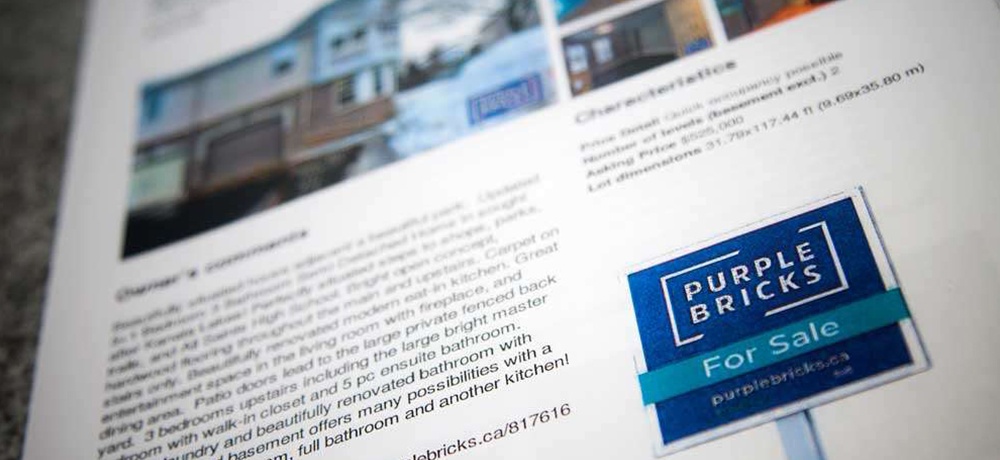How to buy or sell a house during the Covid-19 pandemic

How to buy and sell a house in the time of coronavirus, from virtual tours to hazmat home inspections
Sales and listings in some of Canada’s biggest housing markets have slowed dramatically over the past few weeks as social distancing measures to combat the spread of COVID-19 have taken hold, putting an end to any hopes of a strong spring real estate season.
In Toronto, for example, sales have dropped from 759 in the first week of March to just 299 in the fourth week of the month, according to data compiled by Konfidis Brokerage.
While many would-be buyers and sellers are clearly waiting for the storm to blow over, those who need to start or complete a real estate transaction will be heartened to know that realtors have been declared essential workers and that, so far, land registry offices continue to function.
That said, many of the normal steps in the homebuying process have been disrupted.
Buyers, for instance, may have a difficult time visiting a listed dwelling in person. Open houses are being strongly discouraged, and visits, while not prohibited, are becoming increasingly rare for health reasons.

In their place, digital workarounds are gaining traction. Virtual home tours have been around for years, but their use has not been widespread and research has found weak evidence that such marketing methods have contributed to higher prices or lower time on the market. But that was before social distancing, which has launchen them from good-to-have to must-have features of a listing.
Have a question about how the coronavirus pandemic affects you? Drop us a line at FPcoronavirus@postmedia.com.
The option to make or accept an offer digitally has been in place for years. It may not be the same as signing the forms on your breakfast table with the realtor by your side, but digital signatures make the process more efficient.
Applying for, qualifying and securing financing has also long been available digitally. Lenders have even introduced smartphone apps to facilitate that process.
One hitherto digitally unmitigated risk for buyers is the home inspection. For condominiums, physical examinations are not a significant concern because buyers rely on the condominium’s status certificate, which speaks to the building’s physical and financial health.
- Can I refuse to go to work because of COVID-19 concerns? Will I be paid?
- How to get the coronavirus-related benefits the government is offering people
- My internet seems slow: How is the coronavirus affecting internet providers?
For the rest, the home inspection is critical to protect buyers from major repairs of undisclosed structural shortcomings that may not be obvious in virtual or physical tours. Home inspectors are functioning. Though the inspections are down by 50 to 70 per cent, according Enio Ferri of Key Home Inspections.
The new normal in home inspections is that, prior to the visit, inspectors collect information about the health and recent travel records of the residents of the dwelling they are about visit to plan accordingly. On site, the inspectors wear a hazmat suit and latex gloves with full respirators and not just a mask. Post inspection communication with the clients is done electronically.
The logistics involved in closing a deal are more intricate as they involve other entities, including real estate lawyers who oversee the exchange of funds and house keys. Until only last month, lawyers would often courier cheques to the other party. This practice is going digital in a big way.
Real estate law firms are often set up as a “bill payee” with the banks. Buyers and sellers can instruct their banks to e-transfer funds to their lawyers’ escrow accounts. Lawyers can also transfer funds electronically to their counterparts. Therefore, an important consideration for buyers and sellers in selecting a law firm is to ensure they are set up to process funds electronically. Similarly, the brokerages must also be equipped to receive commissions digitally.
Transferring keys to buyers, a closing day tradition, is also being disrupted as some are reluctant to involve couriers in the process. Instead, some real estate firms are providing lockboxes to sellers so that buyers can directly obtain the keys on the premises.
The sale of tenanted dwellings poses an additional layer of uncertainty. With a freeze on evictions, a tenant in a for-sale dwelling might not agree to leave — or even pay the rent if facing hardship. The buyer could, as a result, be denied occupancy even though the buyer and seller may have met all conditions.
Anyone who has yet to seal a deal should insist on including clauses that indemnify them if a deal fails to close.
Additional clauses must make provisions for the digital signing of documents and the electronic transfer of funds. Furthermore, new terms should specify the circumstances (e.g., temporary closing of the land registry or the financial institutions) under which the closing date can be automatically extended.
A failed transaction can set off a chain-reaction forcing other transactions to collapse even when buyers and sellers involved have fulfilled all obligations. Such unexpected last-minute developments will require contingency planning for all involved.
Making the biggest purchase of your life under these circumstances may not work for everyone, but thanks to modern technology it is still possible.
Murtaza Haider is a professor of Real Estate Management at Ryerson University. Stephen Moranis is a real estate industry veteran. They can be reached at www.hmbulletin.com.
A message from MSN Canada:
To help those affected by the COVID-19 coronavirus, MSN For Good, powered by Microsoft News, is bringing the plight of Food Banks Canada and their effort to help feed the vulnerable among us to your attention. Find out more about the Food Banks Canada efforts and please donate to the campaign here.
Please be generous.